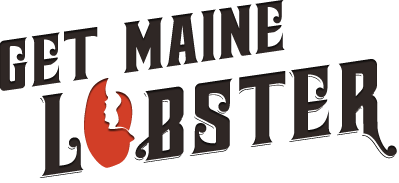Cooking lobster is a pretty great way to enjoy time with family and friends. There’s the undeniably succulent and sweet taste of Maine lobster, coupled with a little bit of theatre during preparation, that makes lobster a great alternative to traditional staples.
Of course, cooking lobster does, admittedly, have a slight learning curve when it comes to cooking. Don’t worry though, cooking lobster is still as easy as preparing any of the other significant proteins, and like those it is has a few quirks that are worth mentioning. If you haven’t cooked lobster before and have reserved your first try for your holiday feast, don’t fret because we’ve got you covered.
So, today's blog is all about helping you avoid the common mistakes everyone makes when they’re cooking their first lobster meal. If you’re not sure where to start at all, why not give one of our recipes a try as well?
Assuming Bigger = Better
It seems like a no-brainer to go for the most giant lobster you can find, but there’s a little more to the whole idea than simply getting more food on the table. Lobsters vary in texture and taste depending on their size, making the choice of size more preference-based than you’d initially assume.
Bigger lobsters are usually older lobsters, much older in fact, meaning their meat isn't going to be quite as tender. Conversely, the smaller the lobster is, the sweeter the meat will be in turn.
Naturally, this all comes down to preference, but if you like some extra bite in your seafood, then go for the bigger ones. On the other hand, if you prefer a sweeter taste, then the smaller end of the lobster scale might be more your speed.
Too Much Seasoning
Again, we might be biased on this issue, but we think lobsters taste pretty darn great by themselves. In fact, we’d argue that you don’t need much more than some melted butter to really enjoy the complete lobster dinner experience!
So, if you’ve got some lobsters in your kitchen, and you’re trying to figure out what seasoning, then resist the temptation to go overboard on the herbs and spices. Maine lobster has a delicate taste that can easily get overwhelmed, so keep it simple.
If you’re stuck for recipes, why not check out one of ours?
Cooking Over & Under
Like most kinds of seafood out there, lobster is a surprisingly easy dish to overcook or undercook, so it pays to be exact with your cooking times!
Overcooked lobster can often get a little rubbery in texture, while an undercooked lobster is gelatinous and frankly inedible.
As a guide, a whole lobster generally takes around 7-12 minutes to cook optimally, though this can depend a lot on the size of lobster you’ve picked up. Check out our guide on cooking lobsters for further information.
That’s it for today’s blog from Get Maine Lobster. Keep an eye out for our next blog entry to learn more about what we’re up to and what makes Maine Lobster so unique.
